RRGraph Design Signs CSR Partnership, Starting from Poverty Reduction to Land Ecosystems Preservation
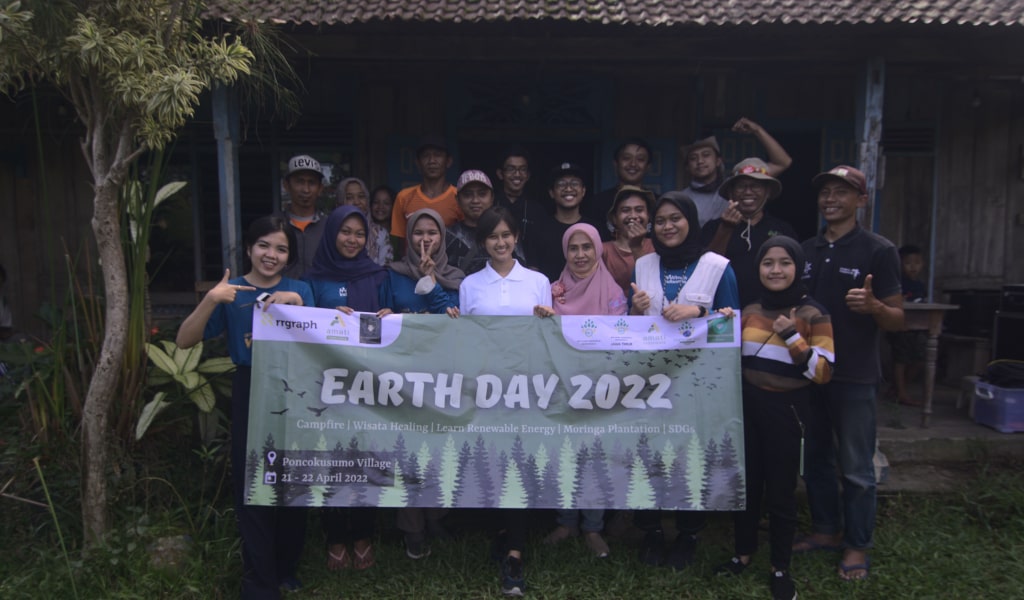
This is the right time for them to move. Young Indonesians play a vital role in social activities, especially in Corporate Social Responsibility (CSR). A project-based learning system can help students develop the skills they need to succeed in their careers. Additionally, it can significantly accelerate villages, SMEs, and communities in rural areas.
We are very conscious of harmonizing our goals with our responsibilities to the operating environment and the surrounding community as a company. In accelerating its development, the company continually strives to develop the potential of the surrounding community and environment. The Community Development Program is part of a series of Corporate Social Responsibility (CSR) programs. Specifically, the company’s CSR program aims to provide sustainable benefits to the community and protect the environment, especially by forming a public awareness of how to preserve the environment.
A. Connecting the most extensive energy in Indonesia to make an impact
Previously, we will briefly tell you about AMATI Indonesia. AMATI IS a Social Enterprise engaged in youth development using a Project-Based Learning system that we develop continuously to solve real problems in society to support a more sustainable life in the future. The projects in AMATI Indonesia are based on problem-solving programs, especially those in the SDGs. RRGraph Design has participated in sustainability goals activity (CSR), collaborating with AMATI Indonesia.
So, youth in Indonesia are likened to energy to become problem solvers using the project-based learning method. In this case, their role is to optimize the sustainability impact in various problems encountered with multiple strategies. The effect can be huge for the acceleration of village development.
This program has produced more than 82 projects, followed by 400 participants, spread across 14 cities and five islands in Indonesia.
B. What motivated RRGraph Design to participate in this CSR program?

RRGraph Design is Indonesia’s start-up with an international market worldwide. With creative, innovative, agile, youth, and inspiring personality, our company can hope that CSR Program will strengthen Brand Positioning RRGRAPH tagline #startwithpower. In #startwithpower, RRGraph Design has 4 visions: the power of young people, innovation, Empowerment, and sustainability. Besides, as we have this International Program, our company can contribute more to the Global Goals (SDGs). Also, RRGraph Design can strengthen brand ownership in employees.
By RRGraph’s 4 visions, we have a continuing commitment by the business community to act ethically and contribute to the economic development of the local community or society at large, along with improving the standard of living of workers and their families. The point is that we are very aware of the problems in the world by the principles of the SDGs.
So, the Moringa plantation in Poncukusumo has been chosen as one of the CSR Programs executed by RRGraph Design at this time.
Our presentation company represents three things in interpreting this CSR program, namely:
1. Enrich customer loyalty and appreciation for their contribution.
2. Gain sustainability to provide direct social and environmental benefits, create many job opportunities, and equality in thought and work regardless of race, age, and gender (Equality, Health, Social, Education, Local Food, and Economic).
We can conclude that RRGraph Design has essential thinking in doing good business practice through this program to balance business activity to increase profitability & make a positive impact on society and join in environmental protection and preservation.
C. The background of the Moringa Project conducted by RRGraph Design
In carrying out this sustainability development mission, we implement Moringa tree planting as the main program of this CSR collaboration. This program was held in Poncokusumo, Malang Regency, East Java.
Poncokusumo is one of the areas located in Ring 1 of the Bromo Tengger Semeru National Park area with abundant potential for natural resources. Since the beginning, it has been known for its agricultural potential, one of which is the Moringa tree. Moringa is not only a superfood plant but has become a legacy from our ancestors in Indonesia.
Then, what is Moringa? The Moringa project is one of the CSR programs that our company has carried out. Moringa trees, from which moringa products are produced, are originated in India and now found in African, Asian, and American countries such as Ghana, the Philippines, and Haiti.
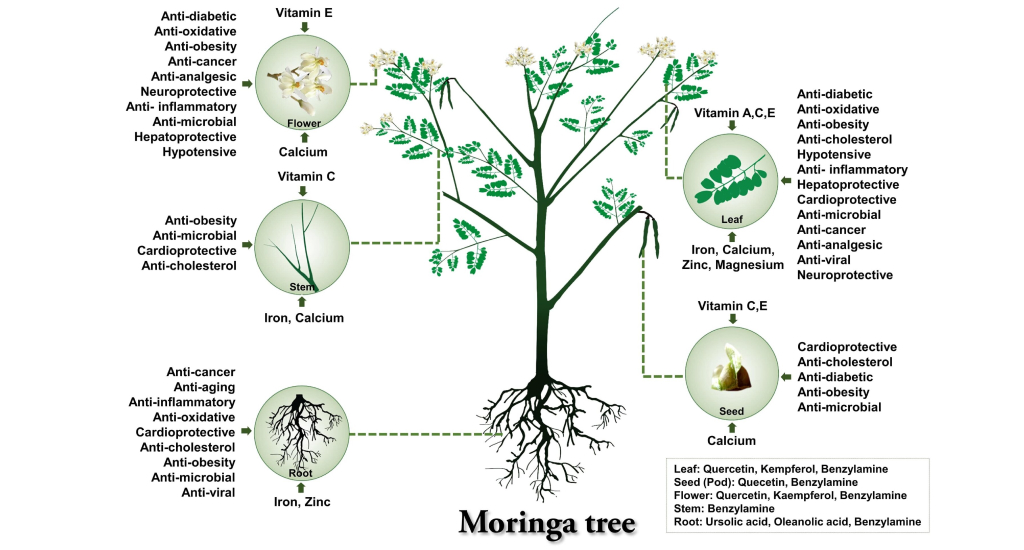
The problems that arise in one of the Poncokusumo villages are as follows:
1. Potential abandoned forest land
Their abandoned land is left unattended, indigenous management systems are lost, and they are forced to use methods of ranching and farming that are often not appropriate in these new areas.
2. Conventional land management
Conventional farming is the method of farming that involves using pesticides and other chemicals to get the highest possible yield of crops. However, using this method compromises crop quality. The chemicals seep into the soil and enter the food chain at multiple points.
3. No integrated agricultural irrigation
There needs to be an increased budget allocation to help them. From the matter of seeds and fertilizer irrigation channels to the storage of crops such as warehouse receipts.
4. Forest destruction by farmers
Farmers annihilate scores of trees by bulldozing, burning, or chopping them to create grazing areas and produce crops, primarily for cattle.
5. The yield of land management is relatively small
Land management manages the use and development (in both urban and rural settings) of land resources. Land resources are used for various purposes, including organic agriculture, reforestation, water resource management, and eco-tourism projects.
6. A solid waste management system
Solid waste management is the collecting, treating, and disposing of discarded solid material because it has served its purpose or is no longer helpful.
7. Conventional farming system
Conventional farming uses seeds that have been genetically altered using a variety of traditional breeding methods, excluding biotechnology, and are not certified as organic.
8. Social inequality (ex. disability)
Social disparities between people with and without disabilities are well documented. Adults with disabilities have lower levels of education than those without disabilities, are less likely to be employed, and are more likely to live in poverty
9. Tourism stakeholders have not been synchronized
Coordination is essential in an organization, both public organizations and private organizations. Coordination is carried out to create a uniform and harmonious effort on predetermined targets.
The primary objective of the Moringa Project in Poncokusomo are as follows:
1. To develop, maintain and protect Poncokusumo forests through reforestation.
2. To support planting 1 million Moringa Trees in Indonesia (collaboration with ABMI & others).
3. Inclusive Business to support the involved communities, including women, the disabled, etc.
4. To generate revenues for the communities by providing a wide variety of easy-to-make Moringa products to be sold for income.
5. Improving health allows people to spend less on medical care and be healthy enough to attend a school or be employed.
6. Providing a route to local and global markets for developing rural farmers.
D. Moringa Project has implemented 4 of the 17 Sustainable Development Goals
Million Moringa Project: The Moringa Project has implemented 4 of the 17 Sustainable Development Goals. Moringa as a Viable Solution against Poverty, Malnutrition, Deforestation, and Economic Growth.
1. No Poverty

Covid-19 has led to the first rise in extreme poverty in a generation. An additional 119-124 million people were pushed back into extreme poverty in 2020. Global poverty is projected to be 7% in 2030, missing the target of eradicating poverty.
2. Zero Hunger

The global pandemic is exacerbating world hunger. Worldwide, 70-161 million people are likely to have experienced need due to the pandemic in 2020. The number of undernourished people in the world: is 607 million (2014), 650 million (2019), and 720-811 million (2020).
These 2020 estimates do not reflect the impact of the pandemic. Pandemic will worsen child malnutrition, with 22% of children under five being stunted, 6.7% of children under 5 suffering from wasting, and 5.7% of children under 5 being overweight. Almost one-third of women of reproductive age globally suffer from anemia due to nutrition deficiencies.
3. Life on Land

More than a quarter of species assessed by the IUCN Red List are threatened with extinction. The proportion of species threatened with extinction is 41% amphibians, 34% conifers, 33% reef-building corals, 26% mammals, and 14% birds. Progress has been made towards sustainable forest management. But, the world has lost 100 million hectares of forest in two decades (2000-2020).
Progress in safeguarding key biodiversity areas has stalled over the last five years. Global mean percentage of each key biodiversity area covered by protected areas in 2021 with 43% terrestrial, 42% freshwater, and 41% mountain. Almost all countries have adopted legislation for preventing or controlling invasive alien species. Invasive alien species negatively affect native biodiversity and cost the global economy billions of dollars annually.
4. Economic Growth

The pandemic has led to the loss of the equivalent of 255 million full-time jobs. About 4x the number lost during the global financial crisis (2007-2009). 1.6 billion informal economy workers who lack a social safety net were significantly affected by the pandemic. Pandemic will lead to an increase in youth not employed, in school, or training. The rate of the child not in education, employment, or activity is 31.1% for young women and 14.0% for young men.
Economic recovery is underway. But for many countries, economic growth is expected to return to pre-pandemic levels only in 2022 or 2023. International tourist arrivals fell from1.5 a billion in 2019 to 381 million in 2020. International tourism is not expected to return to 2019 levels for up to 4 years.
5. Quality of Education
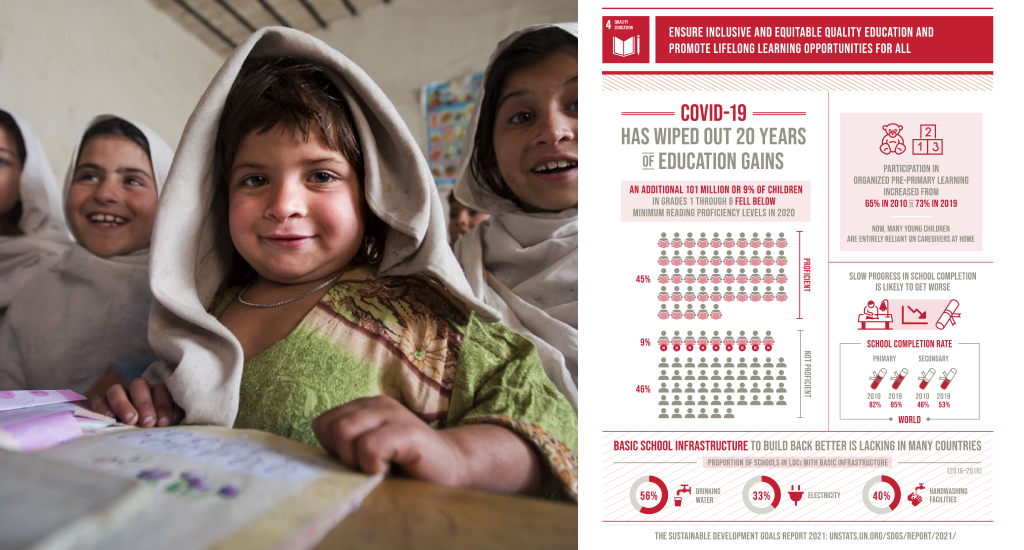
Ensure inclusive and equitable quality education and promote lifelong learning opportunities for all. Achieving inclusive and quality education for all reaffirms the belief that education is one of the most powerful and proven vehicles for sustainable development. This goal ensures that all girls and boys complete free primary and secondary schooling by 2030. It also aims to provide equal access to affordable vocational training, eliminate gender and wealth disparities, and achieve universal access to quality higher education.
The background behind the Moringa Project in Indonesia is:
1. Government for SDGs:
Villages contribute 74% to the national SDGs called the Sustainable Development Goals in Presidential Regulation No. 59/2017.
2. Government for Moringa:
The moringa development centers in Indonesia are primarily located in the provinces of NTT, NTB, Bali, Aceh, North Sumatra, Riau, Central Java, East Java, and partly on the islands of Sumatra Kalimantan, Sulawesi, Papua, and West Papua. Currently, Moringa’s development is a target plant of the Directorate General. Plantation through the Decree of the Minister of Agriculture number 591.1 of 2020 has been carried out for the last three years in production, post-harvest, quality standardization to marketing.
E. Inside the Moringa plantation program, what projects are carried out by RRGraph Design to support this CSR program?
The programs that are focused on being achieved are as follows:
1. Earth Day Program & Education
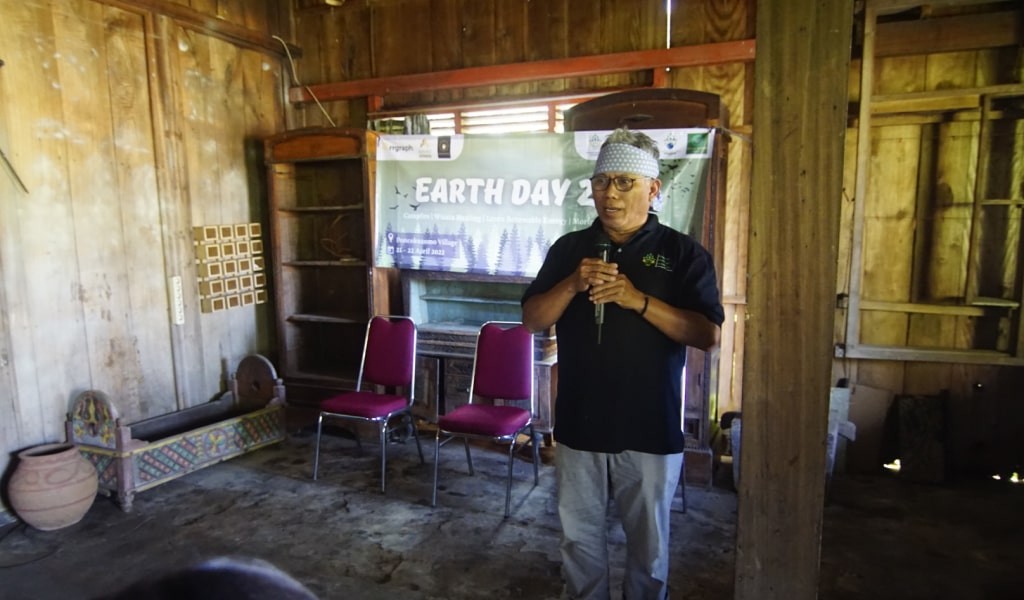
Last month, at the Earth Day event, RRGraph planted Moringa Trees in the Poncokusumo area, Malang Regency. RRGraph works closely with the Amati agency. Always an agency engaged in the CSR field. The goal is that RRGraph wants to contribute more in the social and environmental fields.
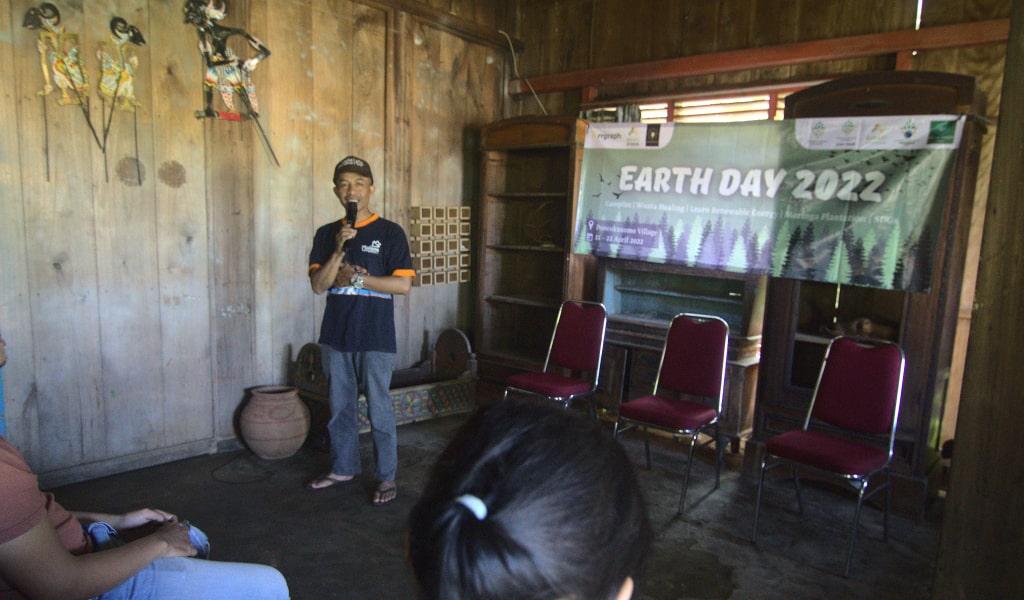
Impact on Society:
a. Raise the motivation of local people to participate in protecting and caring for the environment, especially the forest around their place of residence.
b. Establish mutual commitment and support between related parties in developing Moringa.
c. Improves health, allowing people to spend less on medical care, and be healthy enough to go to school or work.
2. Moringa Plantation & Monitoring
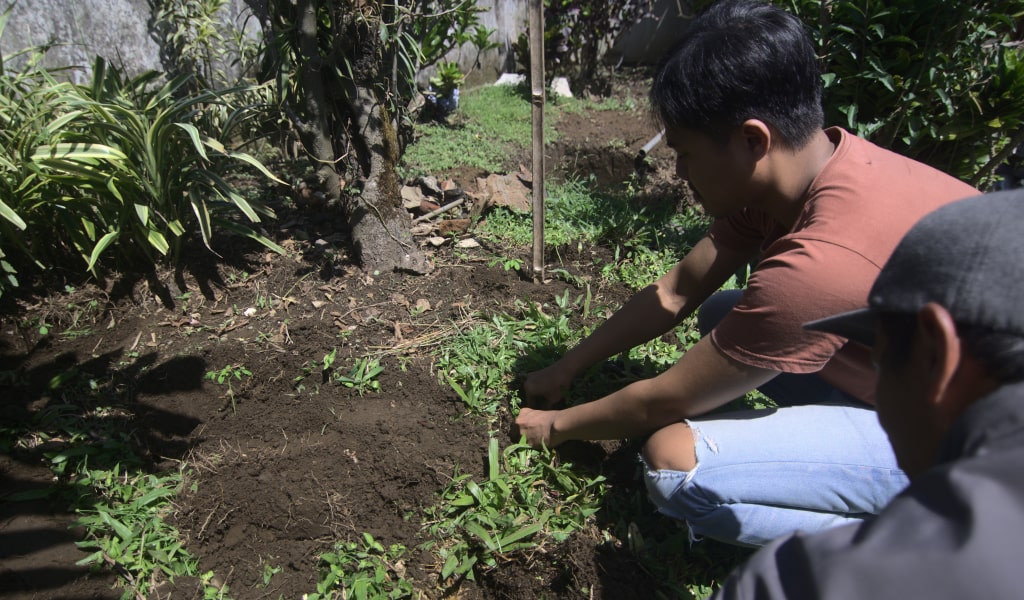
The Moringa plant is a fast-growing, drought-resistant tree that can reach up to 3 meters in its first year. The Moringa tree is very easy to grow—plant seeds or cuttings in a sunny spot. The moringa tree is a plant that grows mainly in semiarid, subtropical areas.
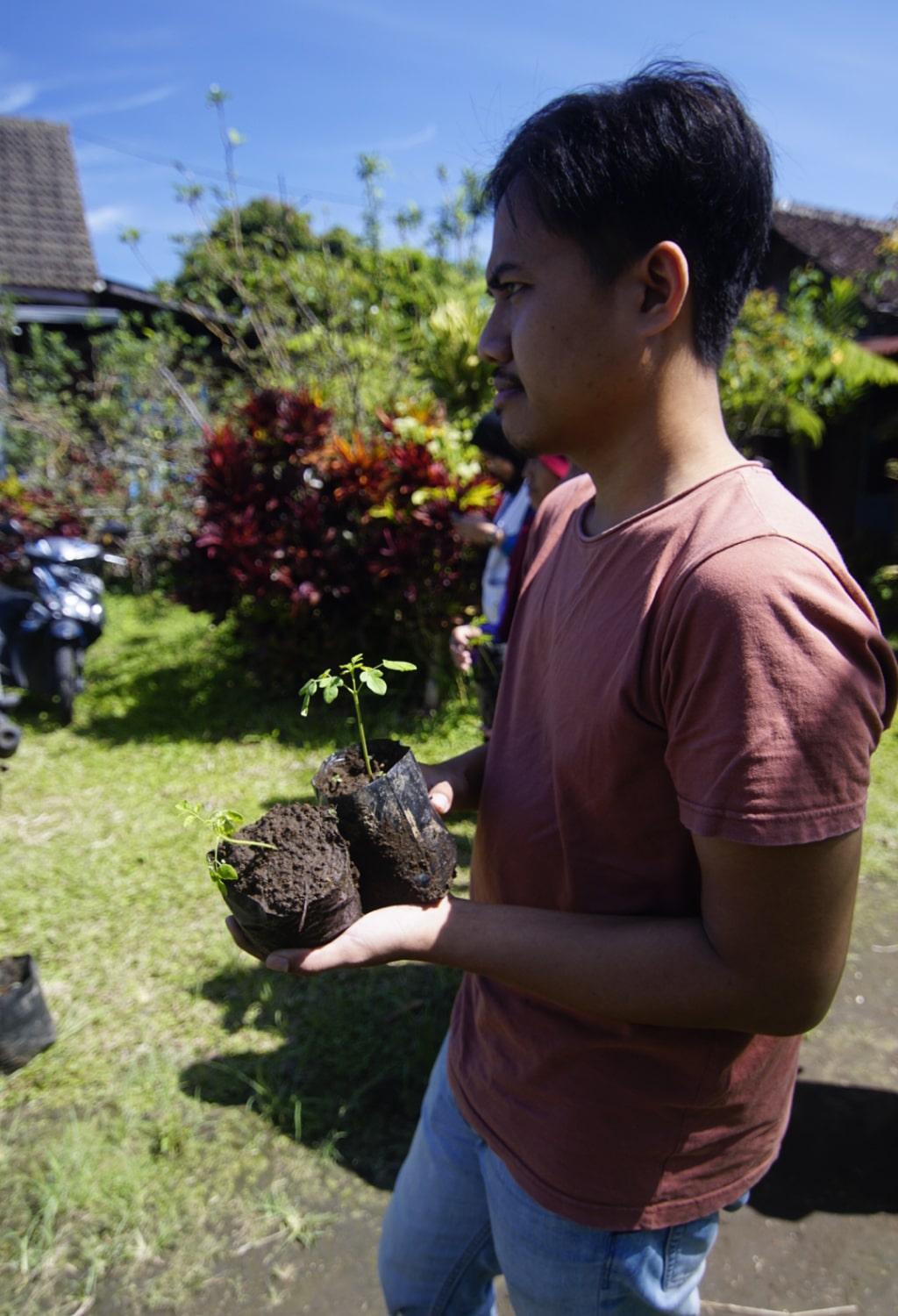
Impact on Society:
a. Develop, maintain and protect the Poncokusumo forest through reforestation.
b. Support the planting of 1 million Moringa Trees in Indonesia (in collaboration with ABMI & others).
c. Inclusive businesses can be involved to support the community, including women, people with disabilities, etc. 1.
3. Local Bazar Program
In this Local Bazar event, we also hold a culinary program. The event was that we did a cooking test using the Moringa plant as a base with the available spices. This nutritious plant has been around for a while—and is used regularly in several South Asian cuisines. If you’re looking to get the most benefit, skip the supplements, and cook with it.
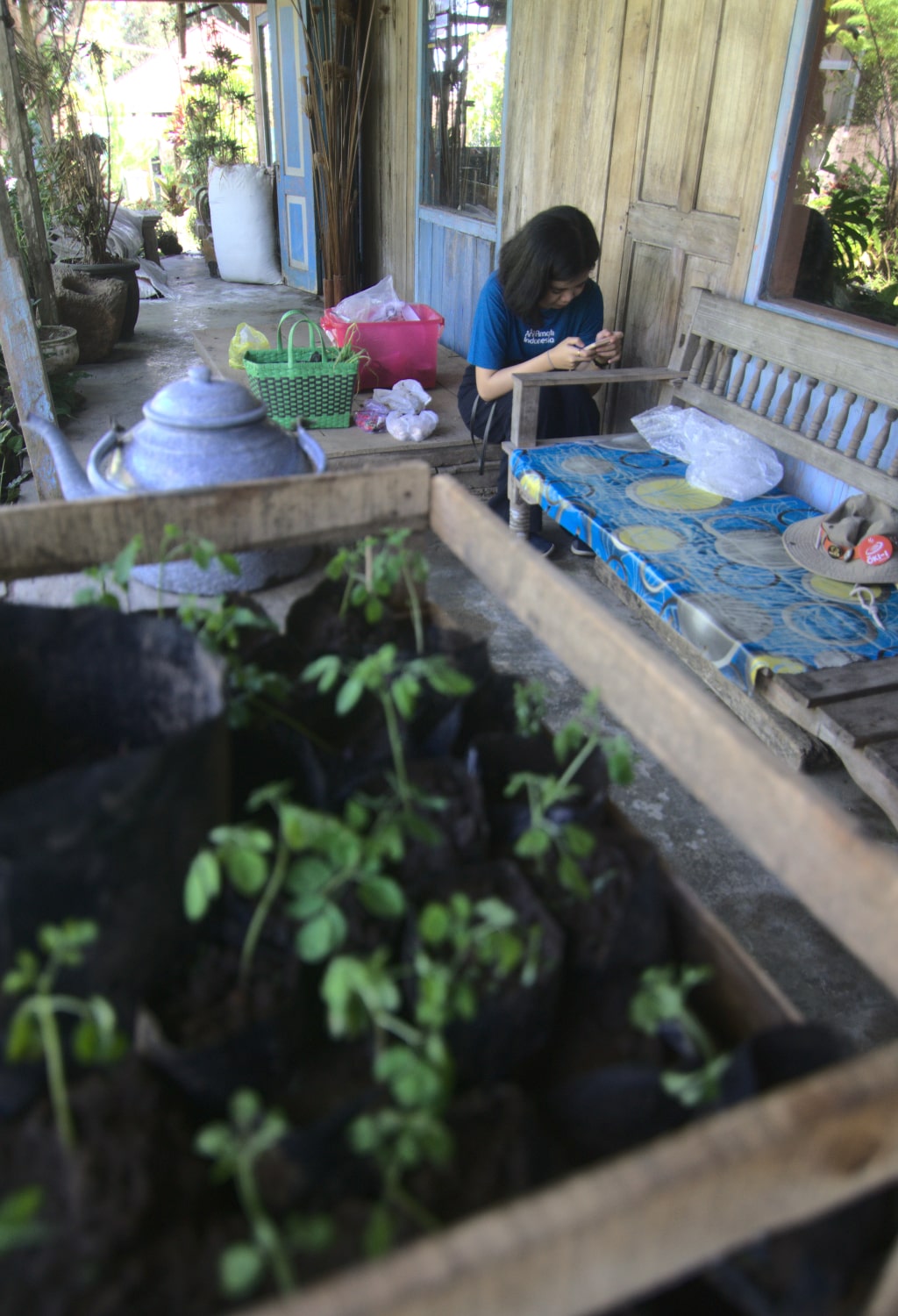
According to Cynthia Sass, MPH, RD, who wrote about the nutritional benefits in Health magazine, moringa leaves are high in protein and substantial sources of Vitamins A, B, and C. They also have more elevated calcium, iron, and potassium levels than those found in other vegetables and fruits.
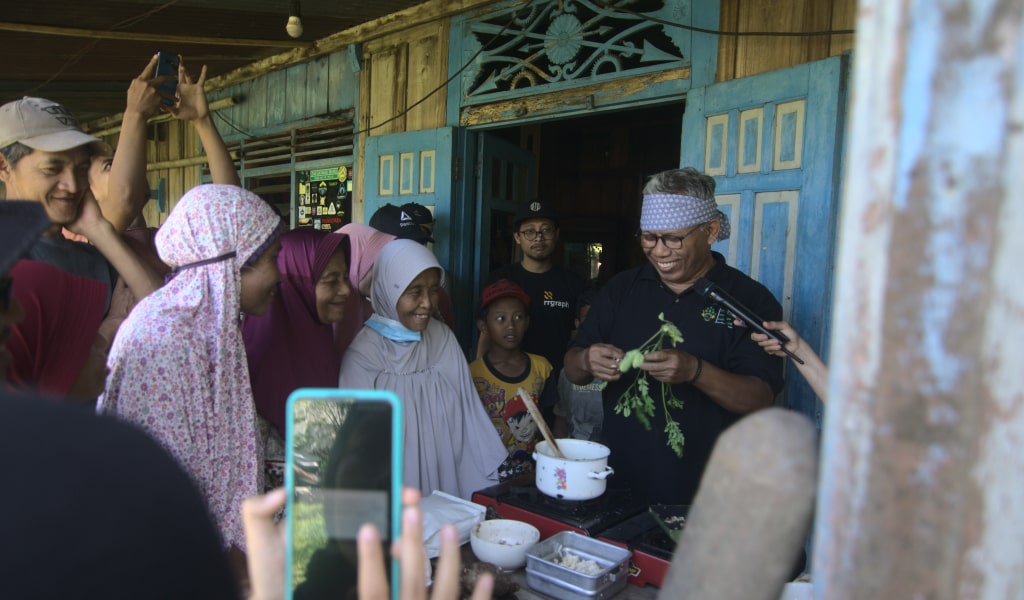
According to the United States Department of Agriculture, a cup of freshly chopped moringa leaves contains 2g of protein, 19% DV of Vitamin B6, 12% DV of Vitamin C, and 11% DV of iron and Vitamin B2. The seed pods are also high in vitamin C and are a good source of fiber, potassium, and other minerals.
Impact on Society:
a. Generate income for the community by providing a variety of easy-to-make Moringa products to sell as income.
b. Introducing Moringa processed products that are rich in benefits to residents.
d. Provides routes to local and global markets for developing rural farmers.
4. Program Exposure & Tourism

The concept used in the development of Wisata Village is Community Based Tourism (CBT). The purpose of developing Moringa Poncokusomo and improving the community’s agricultural sector, tourism development is also oriented toward preserving the environment and community culture, which will provide long-term benefits. The result of this planning program is an agrotourism area that follows the needs and natural conditions around.
Impact on Society:
a. Inclusive Business to support a community that involved including women, people with disabilities, etc.
b. Introducing the potency of Moringa Poncokusumo to the general public.
See also:
Let’s collaborate to make their dreams come true!
Why did we choose Moringa? Apart from having a good impact on the environment, it turns out that the Moringa market globally is very profitable, but unfortunately, many of us don’t know about it.
We are so proud to be able to help make RRGraph’s dream come true to start contributing to the Sustainability Development Goals. Hopefully, these missions will not only plant or teach but sustainably directly impact social and environmental benefits, create many job opportunities, and create equality in thought and work regardless of race, age, and gender.
Let’s visit RRSlide to download free PowerPoint templates. But wait, don’t go anywhere and stay here with our Blog to keep up-to-date on all the best pitch deck template collections and design advice from our PowerPoint experts!




